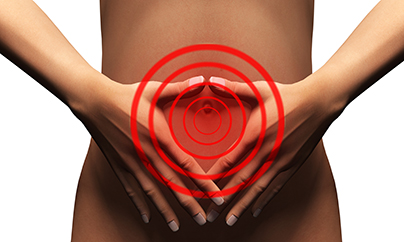A peptic ulcer is a focused area of erosion of the stomach lining or small intestinal lining. Peptic ulcers can cause discomfort, bleeding, and even perforation. Generalized gastritis (swollen and inflamed stomach tissue) can also result from a breakdown of this lining.

Peptic ulcer prevalence is estimated to be roughly 0.5% of the U.S. general population.1 Many of these individuals are older than 60 years old. There seems to be a small, but significant genetic connection with risk, but mostly environmental factors are involved. Risk factors associated with a higher incidence of peptic ulcer disease include:
Protecting the stomach and intestinal lining by avoiding the above risk factors is important in order to avoid getting an ulcer. Many people do not realize that providing the right dietary building blocks (phytosterols, phospholipids, etc.) that make up the stomach and intestinal lining is an important strategy to keep it strong and less likely to break down. This may be why refined-food-heavy diets are associated with ulcers—because they are low in phytosterols and phospholipids. A Nutritarian eating style is high in the right foods that help protect the stomach and intestinal lining and recommends avoiding alcohol, tobacco, and unnecessary drugs, which can collectively reduce the risk of ulcer dramatically, if followed.
ONLINE: All members of DrFuhrman.com can search the Ask the Doctor archives for discussions on this topic. Platinum and Diamond members can connect with Dr. Fuhrman by posting questions in the forum. Not a member? Join now.
IN PERSON or ONLINE: Book a consultation with a specialist at Longevity Rx in San Diego, California, run by Joel Fuhrman, MD and Cara Fuhrman, ND. Using nutritional protocols, cutting-edge screening tools, advanced imaging, and innovative treatments for pain and injuries, they'll create a personalized action plan to help you prevent and recover from illness, and achieve your optimal weight. Book online at Longevity Rx or call +1 (858) 367-3558
EVENTS: Join Dr. Fuhrman for an online boot camp, detox or other event. During these immersive online events, you’ll attend zoom lectures, follow a special meal plan, and have access to a special, live Q&A session with Dr. Fuhrman. Learn more about events.
The following are sample questions from the Ask the Doctor Community Platinum and higher members can post their health questions directly to Dr. Fuhrman. (All members can browse questions and answers.)
What is the best diet for an ulcer? All my doctor told me is to take Pepcid AC, and eat a bland diet!
Avoid any drinks such as alcohol, coffee or tea and certainly avoid any soft drinks. Avoid spicy foods. Reduce the amount of acidic foods, such as tomatoes and citrus, for now until it heals. Otherwise, you should be able to eat a variety of cooked vegetables, starchy and non-starchy, and perhaps fewer raw vegetables, but it is ok to eat all other fruits and berries. Cabbage juice or other cruciferous greens consumed two to four ounces twice/day is soothing and can help the ulcer heal. Some end up taking a zinc-carnosine supplement to help the ulcer heal.
My husband has just been diagnosed with a peptic ulcer. Can he juice and blend? He’s a very S.A.D eater, so I have to tread lightly, but I want to offer him some support and guidance.
It’s the entirety of the diet that is important, however, he should include cruciferous vegetables daily. Eliminate refined foods, sweets, dairy, oils, breads, pasta, coffee, tea, and alcohol. Yes, blend foods high in quercetin, such as apples, leafy greens, and citrus fruit. Juice cabbage, kale, carrots and beets. Include cooked tomatoes, red grapes, and parsley in his diet.